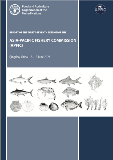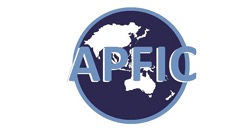
The Asia-Pacific Fishery Commission (APFIC) works to improve understanding, awareness and cooperation in fisheries issues in the Asia-Pacific region. The APFIC Secretariat is hosted by the FAO Regional Office for Asia and the Pacific, in Bangkok, Thailand. The 37th Session of the Commission adopted a resolution to suspend activity of the Commission for a period of five years until 2028. The Secretariat will continue to maintain correspondence.
Recent Commission reports

Report of the Thirty-Seventh Session of the Asia-Pacific Fishery Commission (APFIC)
2023
Report adopted by the Thirty-seventh Session of the Asia-Pacific Fishery Commission (APFIC) convened in Qingdao, China from 13 to 15 June 2023. It was informed of current limitations to the effective function of APFIC. The Commission adopted by consensus the “Resolution for suspension of the activities of the Commission”. The officers of the Commission remain unchanged and will remain incumbent.

Asia-Pacific Fishery Commission (APFIC) report of the Executive Committee Seventy-eighth Session - Virtual session, 21-23 June 2022
2022
This document presents the final report of the Seventy-eighth Session of the Executive Committee of the Asia-Pacific Fishery Commission (APFIC) that was held virtually from 21 to 23 June 2022. The Executive Committee reviewed the recommendations of the meetings of the Ad Hoc Working Group on the Future of APFIC and proposed two resolutions – to suspend or to continue – to be considered by Members during the Thirty-seventh Session of APFIC to be convened...

Report of the First Meeting of the Ad Hoc Working Group on the Future of APFIC - Virtual meeting, 18–19 August 2021 and Report of the Second Meeting of the Ad Hoc Working Group on the Future of APFIC - Virtual meeting, 24–25 February 2022
2022
The Asia-Pacific Fishery Commission (APFIC) was established in 1948 and has undergone various reforms since then to adapt to the changing international governance of fisheries as well as reforms in the function and resourcing of FAO’s regional fishery bodies. This gradually induced a major crisis in the commission’s ability to develop and execute a work programme for servicing its members. The 36th Session of the Asia-Pacific Fishery Commission, held in May 2021, recognized the...





